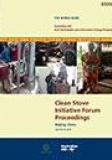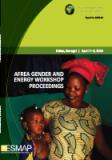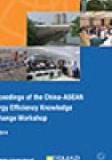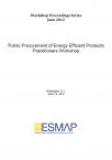Publications
The “Subsidy Matrix” was presented as a simple new tool for policy makers and practitioners in charge of designing or improving access subsidies. The matrix approach applies a systematic process to identify all relevant options for the subsidy set-up in a given local context and compare their probable effects on subsidy performance. The basic idea is to visualize the causalities between (A) nine categories of “subsidy design variables” which policy makers can influence (Subsidy Objective; Funding; Institutional Setup; Recipient & Beneficiaries; Type; Selection Criteria & Competition; Amount & Exit; Regulation; and Monitoring & Adjustments) and (B) seven “pragmatic subsidy performance criteria” (Effectiveness; Efficiency; Sustainability; Resilience; Private Sector Participation; Transparency; and Politics). The matrix can be used (i) in a step-by-step process to identify weaknesses of existing or planned subsidy mechanisms (the participants decided to immediately try out this process in an impromptu afternoon session with encouraging results - see Group Work Report 3.3.); (ii) as a training, decision-making or mediation tool for stakeholders of national electrification programs; and (iii) for the production of quantitative score cards to benchmark the performance of subsidy programs.
Africa Electrification Initiative Workshop
Session 2: Offgrid Business Models
Session 3: Hybrid Electrification Models
Session 4: Rural Electrification Agency and Rural Electrification Fund
Session 5: Grid Intensification, Innovation and Cost
Session 6: Offgrid Technology and Lighting Africa
Session 7: Can Master Plans Work?
Session 8: Pro Access Regulation
Session 9: Monitoring and Evaluation
Session 11: Financing and Subsidies for Utilities
Session 12: Financing (and subsidies) for Small Providers and Renewable Energy
Session 13: User Financing via Micro Finance Institutions (MFI) and Utility Bills
Session 14: Institutional and Financial Aspects of a Rural Electrification Experience: Tunisia
Session 15: An Energy Subsidy Clinic: How to Design and Improve Access Subsidies



